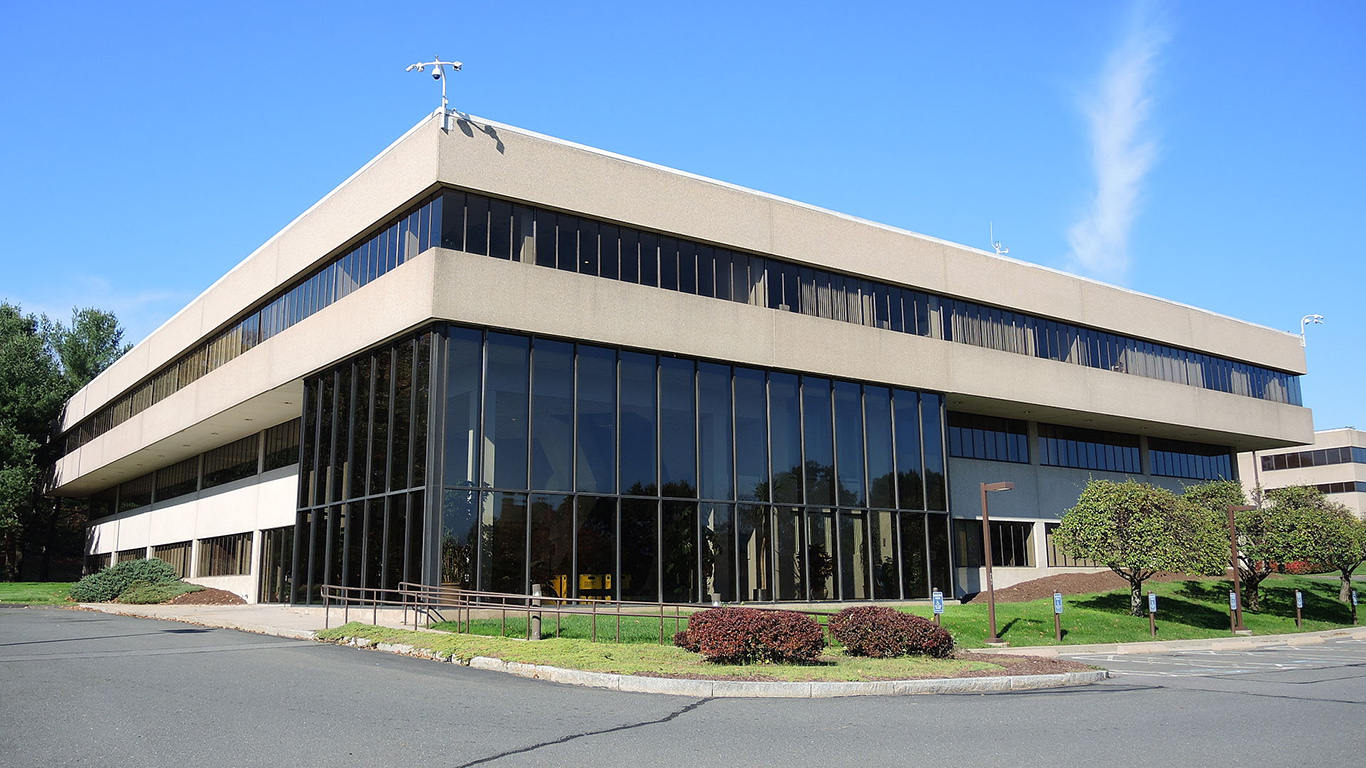Military
What Will Happen to UTC and Raytheon in the Dow Post-Merger?

Published:
Last Updated:

The world of mergers and acquisitions and special-situation investing never ceases to evolve. The case of Raytheon Co. (NYSE: RTN) and United Technologies Corp. (NYSE: UTX) fits right in the middle of M&A and special situations.
An announcement on Friday indicated that the shareholders of both companies had voted “overwhelmingly to approve all of the proposals necessary to complete the merger of equals transaction.”
Investors may find this transaction as a tad more interesting than other mergers and spin-offs because UTC is a member of the Dow Jones industrial average. UTC also currently has roughly a 3.4% weighting inside the Dow, with the Dow’s 30 members being weighted solely by share price rather than by the market-capitalization method of almost all other major stock indexes.
A traditional business combination or merger would have just made UTC a larger conglomerate. Raytheon’s market capitalization of $55 billion is not even half of the $117 billion for UTC.
As for the special situation theme, it will unlock value form the combination of UTC aerospace businesses (Collins Aerospace and Pratt & Whitney) with Raytheon into the new Raytheon Technologies Corporation as a pure-play in aerospace and defense. UTC is spinning off the Otis (elevators) and Carrier (heating and air conditioning) businesses.
According to the newest release, this transaction is expected to close during the first half of 2020. The merger is still subject to regulatory approvals and the separation of those two businesses.
It remains to be seen how the dividends will be handled after the merger and separations. UTC just approved its $0.735 per common share quarterly dividend a day earlier, and its dividend yield now is roughly 2.2%. Raytheon has a 1.9% dividend yield.
It is always interesting to see how these special situations pan out, and evaluating a chart on the company’s past may prove to be a futile effort in the future.
Raytheon was last seen down 0.1% at $198.41 a share, and UTC traded up 1.7% at $136.20.
For the ultimate question: If Carrier and Otis are going out on their own, and UTC and Raytheon are entering into a merger of equals in aerospace and defense, which company of these mentioned or outside companies will become the newest member of the Dow Jones industrials? Will the aerospace and defense combined operation remain in the Dow, or will the indexes team want to replace it with a new company entirely?
Before thinking this is not an issue for index watchers, think of all the former Dow stocks that had previously or after the fact witnessed many key changes. General Electric was simply booted, but other former Dow members such as Hewlett-Packard, Alcoa, DowDuPont, AT&T, Kraft Foods, AIG, Altria have all seen major changes over time.
Start by taking a quick retirement quiz from SmartAsset that will match you with up to 3 financial advisors that serve your area and beyond in 5 minutes, or less.
Each advisor has been vetted by SmartAsset and is held to a fiduciary standard to act in your best interests.
Here’s how it works:
1. Answer SmartAsset advisor match quiz
2. Review your pre-screened matches at your leisure. Check out the advisors’ profiles.
3. Speak with advisors at no cost to you. Have an introductory call on the phone or introduction in person and choose whom to work with in the future
Thank you for reading! Have some feedback for us?
Contact the 24/7 Wall St. editorial team.